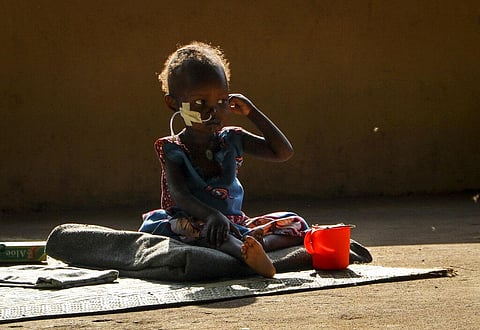

JUBA (South Sudan): Famine-like conditions in South Sudan's southeast have left 13 people dead due to lack of food and water, an aid agency has said.
Hundreds more from the country's minority Jie community are on the verge of starvation in the northwestern region of Kapoeta in Eastern Equatorial state, the Humanitarian Development Consortium said Wednesday.
Thousands of Jie people have been surviving on wild fruits for food with no sustainable water supply as all attempts to drill boreholes in the areas where they live have failed due to low water levels, the aid agency said.
In the past, the Jie community had migrated to the Boma area of South Sudan's Greater Pibor state in search of water, but it led to violence.
Years of civil war, famine, floods and a collapsing economy have taken their toll on South Sudan since the world's newest country gained its independence in 2011.
A "recent upsurge in numbers" of hungry people has created a "worrying situation," the agency's executive director William Ngabonziza said.
The "situation was horrible" with more than 5,000 people currently in a camp located some 75 kilometers from the county headquarters, Emmanuel Epony, a commissioner of Kapoeta North County, told the Associated Press.
The community has suffered for the last three years and confirmed that 10 elderly people and three children had died recently after going for days without food, Chief Peduin Anthony of the Chumai Boma said.
"I'm not sure how we're going to survive now that the wild fruits are almost finished," an elderly woman, Dapai Lolup, told the aid consortium, adding that the wild fruit is bitter and causes diarrhea and stomach pain, especially in children.
Livestock which are the main source of livelihood have also died in the region.
Famine was formally declared in parts of South Sudan in early 2017.The UN in 2022 warned that up to 1.7 million people are at risk of starvation in South Sudan.
Nearly 2 million people have also been displaced in floods that have been ongoing for four years now during the rainy season.